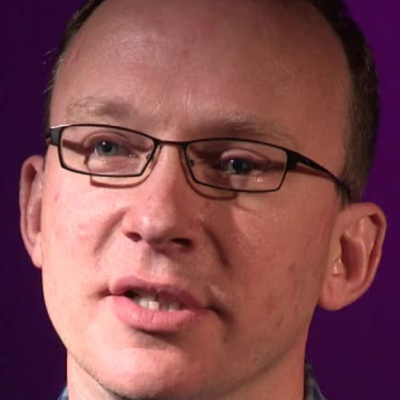The Charles Dent Metabolic Unit (CDMU) is one of the largest and longest established services in the world for the treatment of adolescents and adults (aged 16 years and older) with inherited metabolic diseases, including, among others, phenylketonuria, homocystinuria, galactosemia, fatty acid oxidation defects, glycogen storage disorders, X- linked hypophosphatemia, peroxisomal and urea cycle defects.
Staff at the unit provide specialist medical, dietetic, psychological and nursing advice. We have a purpose-built metabolic diet kitchen to support treatment and education of patients.
The unit is also a designated NHS England highly specialised lysosomal storage disorder service and includes an infusion unit which provides the facilities needed for patients on enzyme replacement and other therapies. We see patients with a range of LSDs including Fabry disease, Pompe disease, Gaucher disease, Niemann-Pick diseases, mucolipidoses and the mucopolysaccharidoses.
Dr Sam Shribman, a consultant neurologist, runs the monthly Wilson’s Disease clinic and provides specialist input for patients with inherited neurometabolic disorders.
The unit has a long history of involvement in research and clinical trials of new therapies for inherited disorders of metabolism.
We have strong links with our paediatric colleagues at Great Ormond Street Children’s Hospital, sharing laboratory facilities, teaching and training opportunities. We also attend regular joint clinics at Great Ormond Street Hospital to help support adolescents and young adults transferring from paediatric to adult medical services.
We also provide a specialist ketogenic diet therapy service for adults with epilepsy. The specialist ketogenic dietitian is a member of the Ketogenic Dietitians Research Network (KDRN) and runs education sessions and provides specialist support for those suitable for ketogenic diet therapy for management of their epilepsy. Referrals for this service should come from the patient’s current epilepsy specialist (neurologist).
Patients who require a hospital admission for investigations or to start treatment are usually admitted to a purpose-built complex care ward (the Neuromuscular Complex Care Centre, NMCCC), which is fully adapted to support all physical needs. For those with learning disabilities, every effort is made to ensure that an individual side-room is booked to allow a parent or carer to remain overnight.
For urgent medical advice (eg. suspected acute metabolic decompensation)
To obtain urgent advice by telephone - GPs, A&E staff or other, medical staff can contact switchboard (0845 155 5000 or 020 3456 7890) at University College Hospital, and ask for the consultant-on-call for adult inherited metabolic disorders and lysosomal storage disorders at Queen Square.
Emergency guidelines for many inherited metabolic disorders can be found on the British Inherited Metabolic Disease Group website.
Patient contact
Service management
Muhammad Yasin Abdool Hamid
Address
Metabolic Disease (Adult Inherited)
National Hospital for Neurology and Neurosurgery
Charles Dent Metabolic Unit,
Internal Mailbox 92,
Queen Square
London
WC1N 3BG
Other referral information
We can only accept referrals done via E-RS. Once you have logged in to E-RS:
- Select ‘Neurology’
- Then select ‘Not otherwise specified’
- Insert in the search tab ‘The National Hospital for Neurology and Neurosurgery’ or postcode ‘WC1N 3BG’
- Under service results select ‘Adult Inherited Metabolic Diseases – Queen Square’
If you need further advice or support please contact our patient booking team on 020 3448 4777.
Tertiary referrals
Referrals are from trusts nationwide. International patients are also referred to us. The consultants do not do any regular private practice.
We care for adult patients with inherited disorders of metabolism. For many conditions, disease modifying treatments are available, and all patients are offered regular review and symptomatic treatment.
Patient support is provided by two clinical nurse specialists, research nurses, a clinical psychologist, four metabolic dietitians, a dietetic assistant and administrative staff. Which team members are involved with each patient depends on diagnosis, type of treatment and patient need.
Individuals with inherited metabolic disorders usually require lifelong follow-up.

